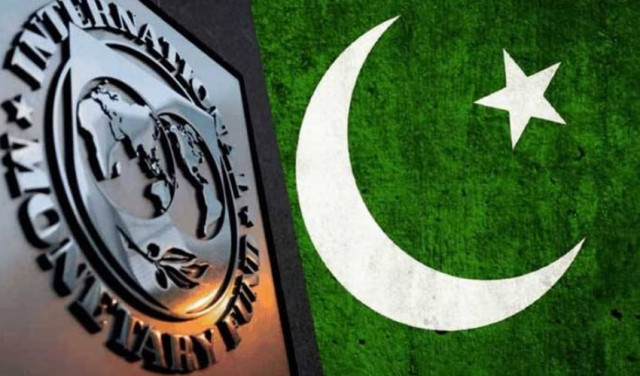ISLAMABAD:
Pakistan said on Thursday that the International Monetary Fund (IMF) did not allow it to abolish the additional 4% sales tax being collected from unregistered persons and instead linked the removal with a one-fourth increase in sales tax base.
The supposedly punitive 4% extra tax is now a way of remaining outside the tax net as businesses feel comfortable with paying the additional tax and then recovering it through prices, instead of becoming part of the tax net.
The IMF rejected a proposal to abolish 4% sales tax and asked to first register 50,000 more persons in the sales tax regime, said Dr Hamid Ateeq Sarwar, Member Inland Revenue Operations of the Federal Board of Revenue (FBR), during a meeting of the Senate Standing Committee on Finance.
PPP Senator Saleem Mandviwalla chaired the meeting, which was convened to address concerns of the business community and recommend solutions. Mandviwalla supported efforts to discourage tax evasion and broaden the tax base.
There are hardly 200,000 registered sales tax persons, of which only 60,000 pay any tax, said Sarwar, who is reaching the superannuation age this week after having a splendid career in the FBR.
The government had introduced the additional tax to compel people to come into the tax net, which is charged over and above the standard 18% sales tax. However, the businesses passed the extra tax on to consumers and avoided the net.
There were heated discussions in the meeting between the FBR and business leaders over the new punitive powers introduced in the budget. The military establishment has now intervened in the matter after traders observed strikes in Lahore and Karachi.
The Special Investment Facilitation Council (SIFC) held a meeting this week to resolve issues related to the FBR’s arrest powers and adding back over Rs200,000 worth of expenses in cash to the income of businesses. After the intervention, the FBR seemed in a mood to address genuine concerns of the business community.
Faisalabad Chamber of Commerce and Industry President Rehan Bharara questioned whether the FBR used its earlier punitive powers, including the disconnection of electricity and gas supply.
Out of 380,000 industrial connections and 5 million commercial connections, only 5% were in the name of current allottees, thus, they could not be disconnected, said Hamid Ateeq Sarwar.
The low collection from retailers remains one of the concerns but the FBR on Wednesday made a surprising claim before Prime Minister Shehbaz Sharif that it got an additional Rs455 billion from the retail sector in the last fiscal year. The claim requires independent verification as there are concerns that some of the corporate sector firms are also included in the retail category.
Officials of the FBR claimed that total income tax payments made by the retail sector in fiscal year 2024-25 were in fact Rs617 billion and the additional income tax was Rs455 billion. They said that the collection of Rs617 billion included Rs316 billion in quarterly advances given by three categories, wholesalers, retailers, traders and some companies.
The surprising Rs316 billion in quarterly advances could be looked into with critical lenses due to the highly informal nature of the sector. Sources in the FBR told The Express Tribune that a loose definition of the retail sector was used, which included some corporate sector firms.
Representatives of the Karachi Chamber of Commerce and Industry (KCCI) once again raised the issue of arrest powers and penalising the use of cash above Rs200,000 worth of purchases.
Senator Anusha Rahman of the PML-N pointed out some loopholes in the newly approved tax laws, which could be exploited by taxmen against the business community.
Minister of State for Finance Bilal Azhar Kayani said that the prime minister has instructed that harassment of taxpayers will not be tolerated at any cost and the government stands ready to take action if any businessperson is hurt by the misuse of arrest powers.
Anusha Rahman said that the recently approved law empowers the arrest of taxpayers on “suspicion” and “reasons to believe”. She recommended that no person should be arrested until the FBR has evidence of sales tax fraud.
Hamid Ateeq Sarwar said that the government could not amend the law before the next budget but those concerns would be addressed through a subordinate legislation by issuing an explanatory circular.
However, PTI Senator Mohsin Aziz said that the subordinate legislation could not supersede the law.
Immediate amendments to tax laws would reflect poorly on the standing committees that debated those amendments, parliament that approved the laws and the government that proposed them, remarked Saleem Mandviwalla.
Sarwar came down hard on business leaders, saying that in the past two years attempts were made for a whopping Rs2.2 trillion worth of sales tax fraud and the FBR registered FIRs against those people. “If anyone has doubt, we can arrange their meetings with these people in jail,” he said.

